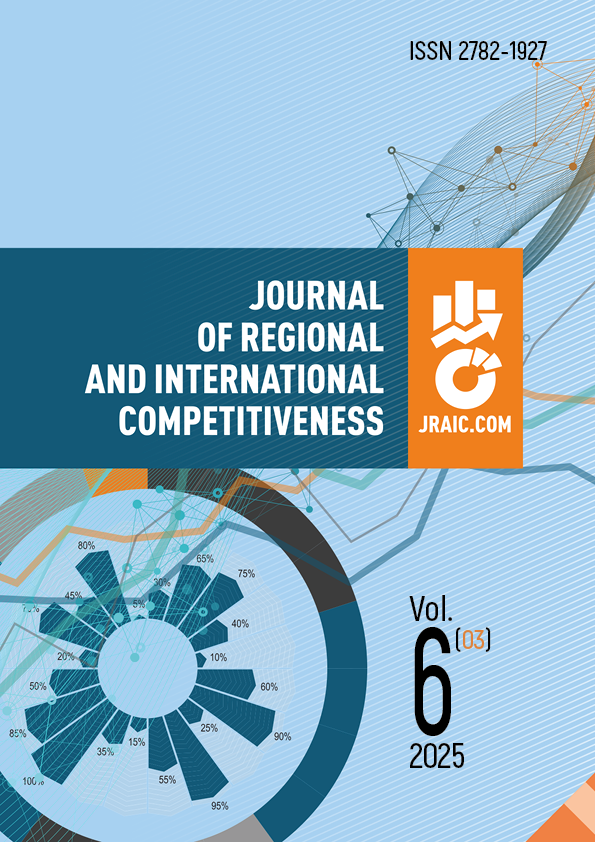Yaroslavl, Yaroslavl, Russian Federation
Yaroslavl, Russian Federation
Kostroma, Kostroma, Russian Federation
The increasing competition in the labour market emerged the problem of graduates' adaptation. The education system helps to live and work effectively in a rapidly changing world. Nowadays, the major purpose of education is personal, social, and professional competences. Indeed, the ability of the graduates to analyse and effectively use information is one of the most demanded. Therefore, an independent work of the students takes a significant place in the curricula of higher education institutions. However, to be competitive in the labour market is the one urgent task of the modern education. The purpose of this study is to determine empirically the effectiveness of portfolio technology for personal branding development in terms of competitiveness. Indeed, the process of personal branding development is relevant since the employment of graduates is included in the university's accreditation indicators. Despite the portfolio technology has been introduced into the higher education system, according to our research, it does not achieve its goals. The reason is the formal and unjustified attitude of the education system towards the technology. However, our research shows a high ranking of motivation to master self-presentation skills, professional career, etc. Therefore, there is a need to address this contradiction through the effective management. The sociological survey method allows us to describe the process under study and identify the difference between educational institutions. Indeed, the skill of personal portfolio development depends on the objectives of the educational process at the university. Moreover, many students are not informed about the portfolio technology. We possess it a result of insufficient management in terms of personal brand development. In general, according to research results, mastering of portfolio technology as a tool for personal branding and competitiveness is quite poor.
portfolio technology; personal competition; personal branding; self-presentation; professional community
1. Asmolov, A. G., & Pasternak, N. A. (2020). The child in adult culture. Moscow: Yurait. (in Russian)
2. Bolotov, V. A. (2010). Scientific and pedagogical support for the assessment of the quality of education. Problems of Modern Education, (1), 9–13. (in Russian) EDN: https://elibrary.ru/NPVNZR
3. Vazhnova, O. G. (2015). Formation of the comprehensive school brand. Yaroslavl Pedagogical Bulletin, 2(2), 7–12. (in Russian) EDN: https://elibrary.ru/TQJVNB
4. Volochaeva, O. F. (n.d.). The personal brand of a journalist as a factor of professional success in the new conditions. Scientific Papers of RANEPA, 14(1[58]), 50–53. (in Russian)
5. Donina, E. E. (2023). The content of the concept of “personal professional brand of a teacher.” In E. Yu. Ignatieva, S. M. Elkina, & M. V. Zvyaglov (Eds.), Collection of scientific articles of the All-Russian Scientific and Practical Conference (pp. 47–52). Veliky Novgorod. (in Russian) DOI: https://doi.org/10.34680/978-5-89896-868-7/2023.read.07
6. Zeynelova, A. E. (2017). The image and personal brand of a teacher. In Human Studies: Proceedings of the 13th International Scientific Conference. (pp. 18–22). Kemerovo: Pluto Publishing House. (in Russian)
7. Zimnyaya, I. A. (2010). Educational psychology. Moscow: MPSI. (in Russian)
8. Knyazeva, M. A. (2020). Discourse analysis as a method of teaching the discipline “Brand Management” (on the example of a university brand). Education and Problems of Society Development, 1(10), 67–71. (in Russian)
9. Mazilkina, E. I. (2008). Branding: Study and practice (Textbook). Moscow: Dashkov and Co. (in Russian)
10. International Conference "Portfolio in Modern Education." (2020). Moscow.
11. Pitko, O. A. (2022). The role of social networks in promoting a teacher’s personal brand. Actual Problems of Modern Science, Technology and Education, 13(1), 91–94. (in Russian) EDN: https://elibrary.ru/USPWZY
12. Popova, I. V., Abramova, M. B., & Zorin, A. V. (2024). The structure of students' personal competitiveness as a determinant of target setting formation in academic educational process. Journal of Regional and International Competitiveness, 5(4), 46. DOI: https://doi.org/10.52957/2782-1927-2024-5-4-46-53
13. Problems and prospects of education development (IV): Proceedings of the International Scientific Conference, Perm, July 2013. (2013). Perm: Mercury. (in Russian)
14. Radionova, N. F. (2019). The realisation of competency approach in the process of studying of the master course “Pedagogical design of educational process at the University.” The Emissia. Offline Letters: An Electronic Scientific Journal, (12), ART 2795. http://emissia.org/offline/2019/2795.htm (accessed June 24, 2025).
15. Stefanovskaya, T. A. (1988). Pedagogy: Science and art. A course of lectures. A textbook for students, teachers, and graduate students. Moscow: Svershenstvo. (in Russian)
16. Selevko, G. K. (1998). Modern pedagogical technologies (Textbook). Moscow: Narodnoe obrazovaniye. (in Russian)




















